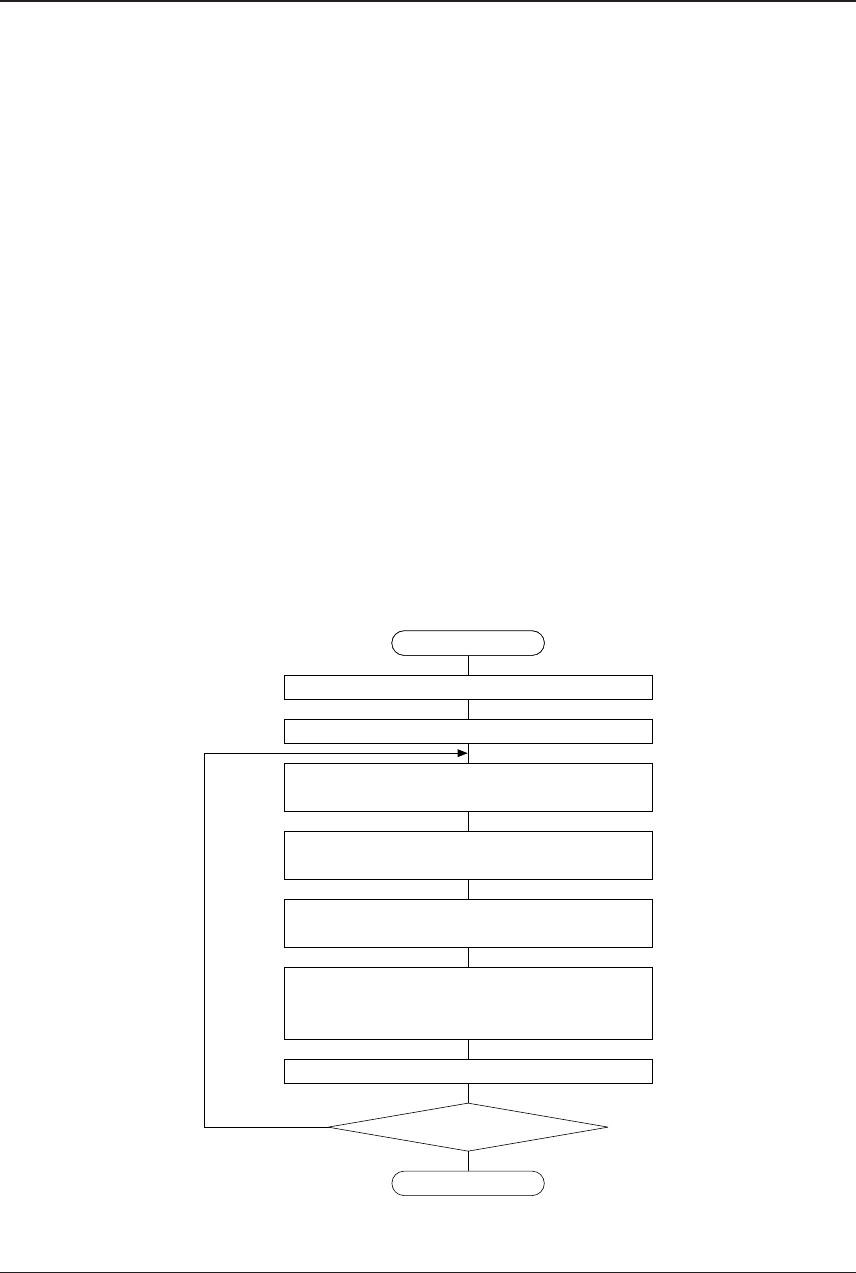
CHAPTER 11: MELODY ASSEMBLER
S5U1C63000A MANUAL EPSON 269
(S1C63 FAMILY ASSEMBLER PACKAGE)
11.4 Melody Data
11.4.1 Outline of Melody Data
To produce music or sound effects with the melody generator of the S1C63xxx, the following four data
must be created:
(1) Tempo data
Two types of tempo settings are available for a piece of music. They can be selected from 16 types of
tempos.
(2) Main data
a) Control bits Attack (for separating notes), rest and the end of melody are specified.
b) Note data Eight types of notes are available.
c) Interval data The range differs according to the reference frequency (38.4 kHz or 32.768 kHz).
d) Jump bit Used to repeat a phrase and to change the flow.
e) Tempo Either one of the tempo data (1) can be selected.
(3) Control data
The jump destinations (main data numbers) from the main data in which the jump bit is set are
described here.
(4) Option data
The hardware option specifications for melody output are set.
11.4.2 Melody Data Creation Procedure
The following flowchart shows the melody data creation procedure.
Write a score.
Execute the melody assembler to generate
melody ROM option HEX and document data.
Execute the function option generator (winfog)
to create a function option HEX data.
Create the program for
controlling the melody generator.
Start up the db63 and the ICE and then
load the program, function option HEX data
and melody ROM option HEX data to the ICE.
Evaluation and debugging
START
END
OK?
Yes
No
STARTSTART
Create a melody data from the score.
Fig. 11.4.2.1 Melody Data Creation Procedure


















